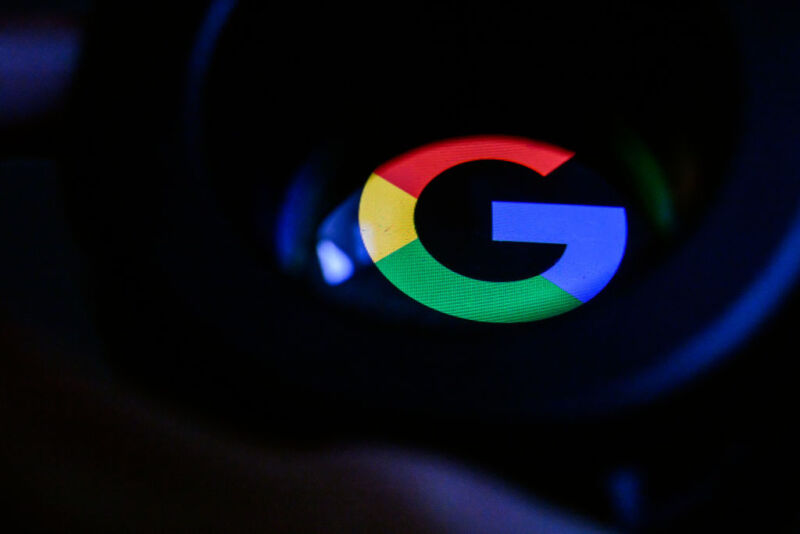
Google this week ended its defense in the US Justice Department's trial against the ad tech monopoly, after a week of testimony from witnesses that experts said did not appear credible.
The tech giant began its defense by showing a widely derided chart that Google CEO Scott Sheffer called a “spaghetti football,” which supposedly shows a fluid industry thriving thanks to Google's ad tech platform, but which mostly “confuses” everyone and possibly even helps debunk its theory. This is reported by policy analyst Karina Montoya of the Open Markets Institute.
“The effect of this image could have backfired because it also made it clear that Google is ubiquitous in digital advertising,” Montoya said. “DOJ's cross-examination untangled the spaghetti football and showed only the ad technology products specifically used by publishers and advertisers on the open web.”
One witness, Marco Hardie, the current head of Google's industry, was even removed from the witness stand. His testimony was deemed irrelevant by U.S. District Judge Leonie Brinkema, Big Tech On Trial reported. Another, Google CEO Scott Sheffer, provided testimony that Brinkema deemed “tainted,” Montoya reported. But perhaps the most heated debate over a witness's credibility occurred during the DOJ's cross-examination of Mark Israel, the key expert Google relies on to challenge the DOJ's market definition.
Google's case largely hinges on Brinkema agreeing that the DOJ's market definition is too narrow, with a reportedly outdated focus on display advertising on the open web, as opposed to a broader market including display advertisements that appear in apps or on social media. But experts following the trial suggested that Brinkema may ultimately cast doubt on Israel's credibility after DOJ attorney Aaron Teitelbaum's aggressive cross-examination.
According to Big Tech on Trial, which posted the exchange on
During his testimony, Israel told Brinkema that Google's share of the U.S. display advertising market is only 25 percent, minimizing Google's perceived dominance while emphasizing that Google faced “intense competition” in this broader market ' from other Big Tech companies such as Amazon, Meta and TikTok. This is reported by policy analyst Karina Montoya of the Open Markets Institute.
During cross-examination, Teitelbaum called Israel out as a “serious 'expert' for companies facing antitrust challenges,” who “always finds that the companies 'explained away' the market definition,” Big Tech on Trial posted on X. Teitelbaum even read quotes from previous cases “in which judges” described Israel's “expert testimony” as “not credible” and “misunderstood antitrust law.”
Israel was also accused by former judges of giving its opinions “based on false assumptions,” according to USvGoogleAds, a site run by digital advertising watchdog Check My Ads along with advertising industry partners. And specific to Google's ad tech case, Teitelbaum noted that Israel omitted data on ad spending to apparently manipulate one of its graphs.
“Not a good view,” the watchdog's website said.
Perhaps most damaging, Teitelbaum asked Israel to confirm that “80 percent of his income comes from doing this kind of expert testimony,” suggesting that Israel was seemingly dependent on payment from companies like Jet Blue and Kroger -Albertsons – and even earlier by Google during the crisis. the search monopoly process – to cloud market definition. Lee Hepner, an antitrust attorney with the American Economic Liberties Project, posted on
“Let me say this clearly: this will not end well,” Kanter said this month during a speech at a conference on competition law. “We are already seeing a percolating distrust of expertise in the courts and law enforcement.”
“The best witnesses that money can buy”
In addition to experts and Google employees who supported Google's proposed factual findings and legal conclusions, Google enlisted Courtney Caldwell – the CEO of a small company that once received a grant from Google and appears in Google's marketing materials – to challenge the claims to prove that a victory at the DOJ could hurt small businesses, Big Tech on Trial reported.
Google's direct investigation into Caldwell was “basically just a Google ad,” Big Tech on Trial said, while the Check My Ads site suggested Google mostly just called on “the best witnesses their money could buy.” are, and it still didn't get them much. far.”
According to Big Tech on Trial, Google is using a “light touch” in its defense and refusing to go “pound for pound” to refute the DOJ's case. This approach allows Google to seemingly ignore any argument the DOJ makes that doesn't fit the picture that Google wants Brinkema to accept that Google's advertising empire is growing organically, rather than built anti-competitively with the intention of shutting out rivals through mergers and acquisitions. .
While the DOJ wants the judge to see “a Google-only pipeline through the heart of the ad tech stack, denying non-Google rivals the same access,” Google argues that it has merely designed “a suite of products that efficiently work with each of them'. others and attract a valuable customer base.”
The biggest problem with Google's defense appears to be the evidence emerging from its own internal documents. AdExchanger's Allison Schiff, who has been following the trial, pulled out the most spicy quotes from the courtroom, where Google's own employees appear to be showing an intention to monopolize the ad tech industry.
Evidence that Brinkeman may be hard to ignore includes a 2008 statement from Google's former president of display advertising, David Rosenblatt, affirming that it would take “an act of God” to get people to switch ad platforms because of the extremely high switching costs. Rosenblatt also suggested in a 2009 presentation that Google's acquisition of DoubleClick for Publishers would make Google's advertising technology resemble the New York Stock Exchange, allowing Google to monitor every ad sale and do for display advertising “what Google did the searching.” There's also a 2010 email in which YouTube CEO Neal Mohan recommended giving Google an edge in the display advertising market by “parking” a rival with “the most traction.”
On Friday, testimony ended abruptly after the DOJ called only one rebuttal witness, Big Tech on Trial posted on

